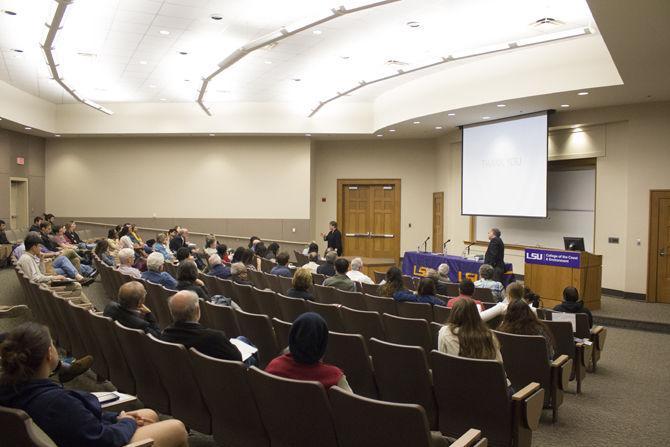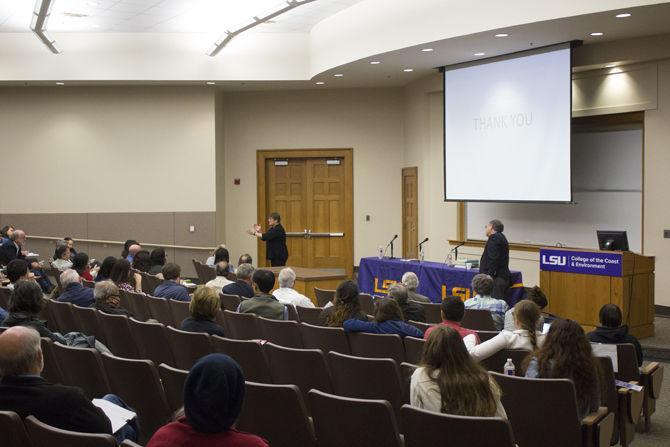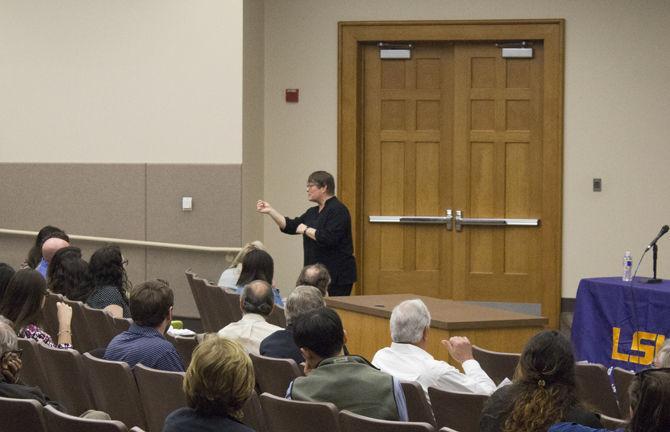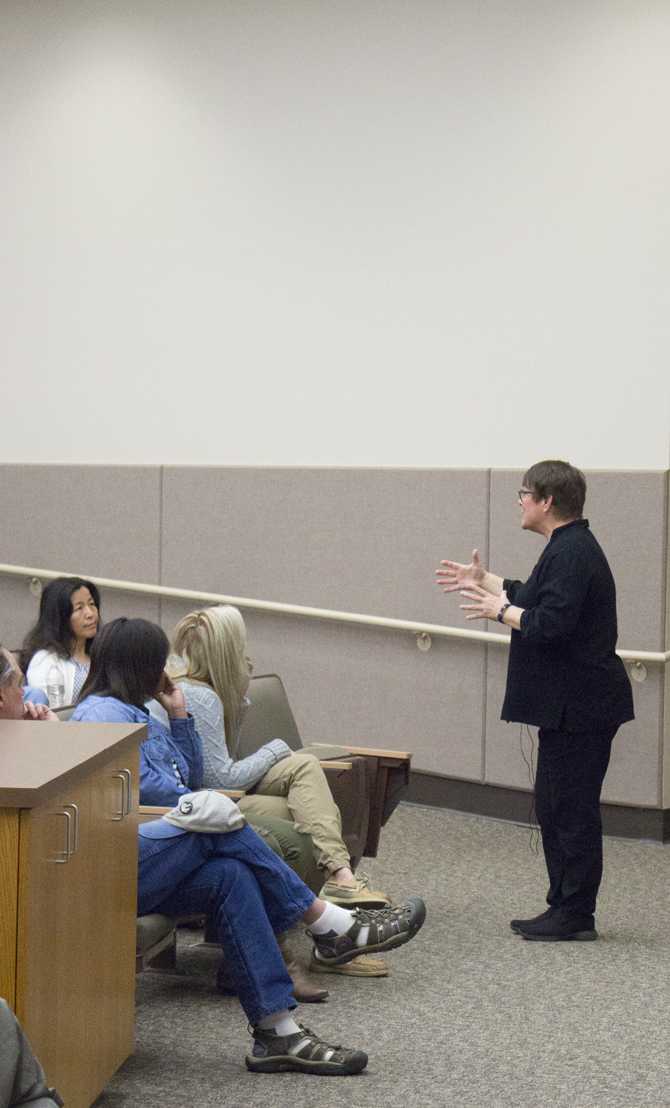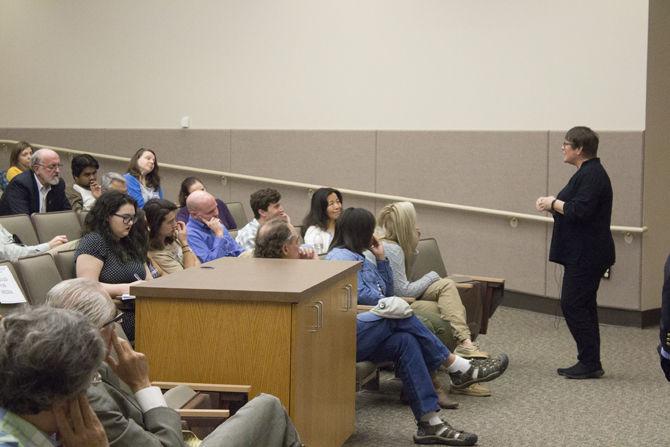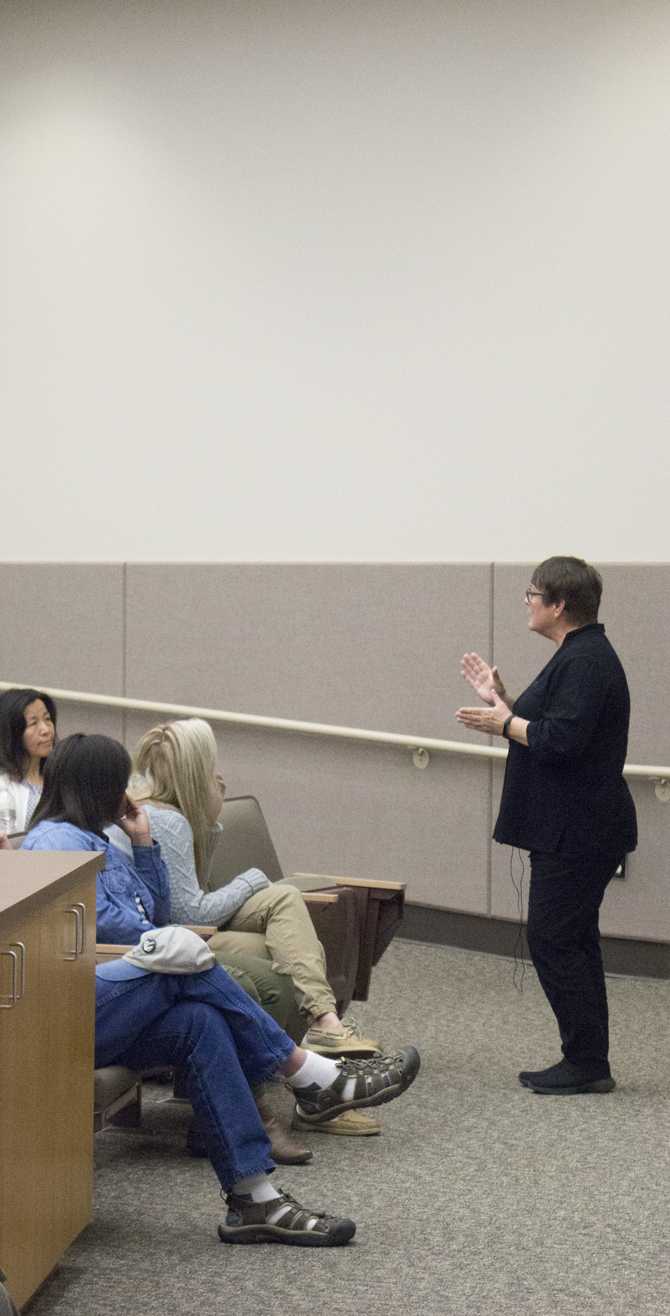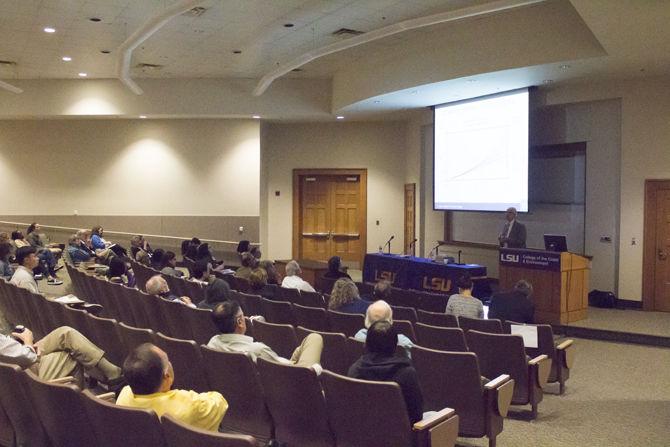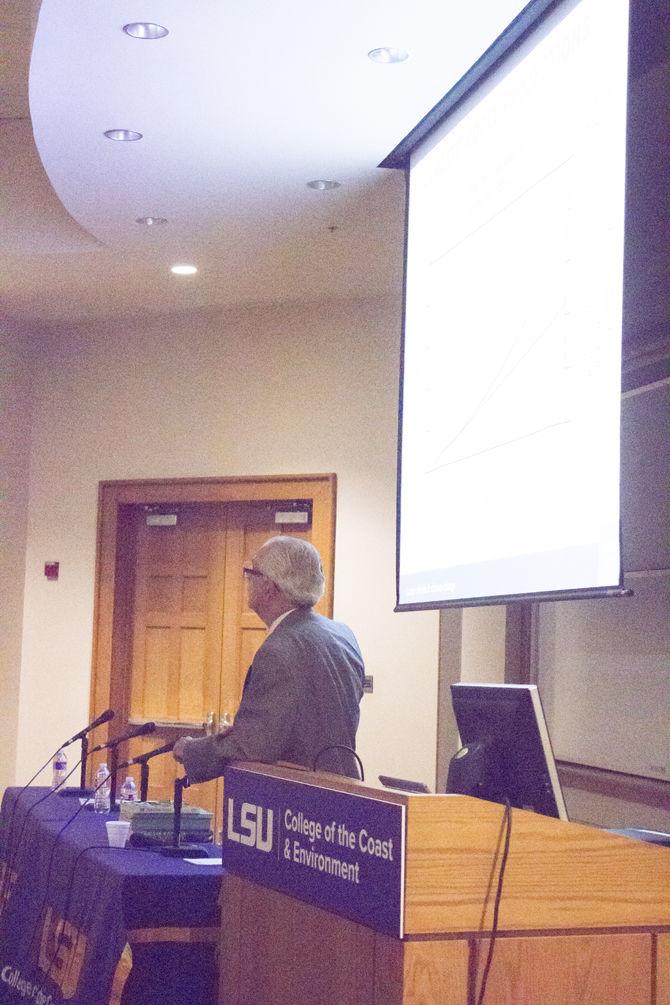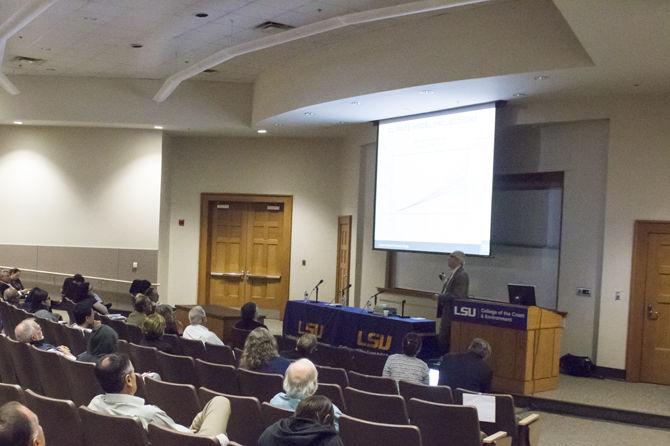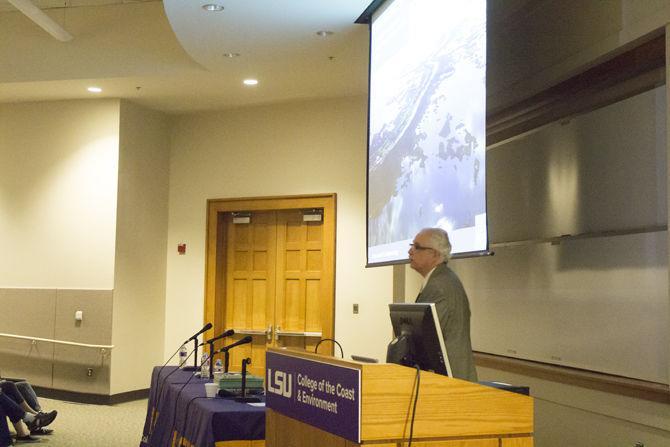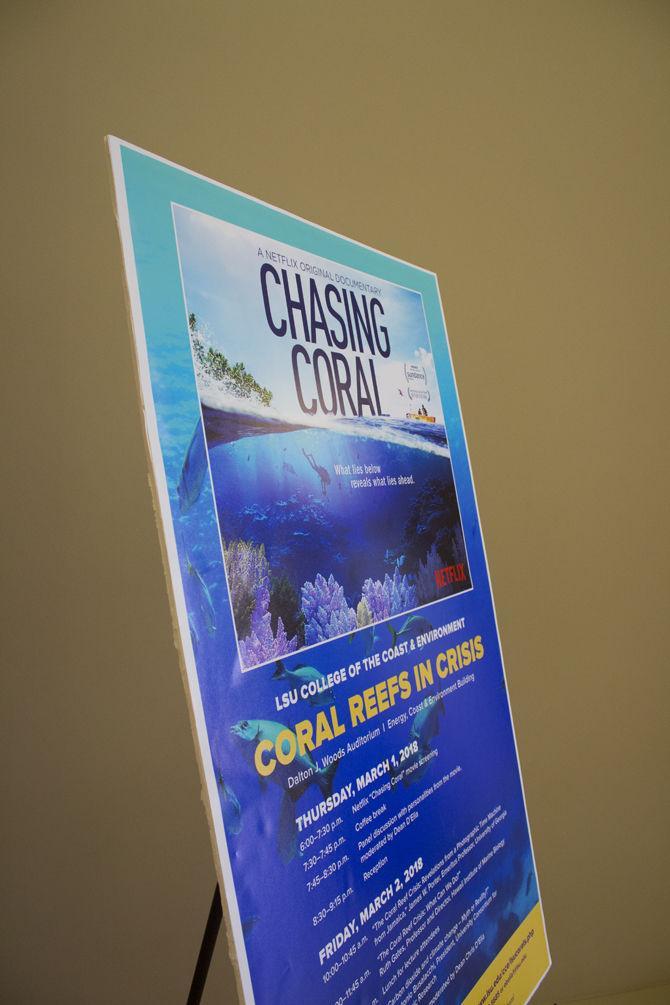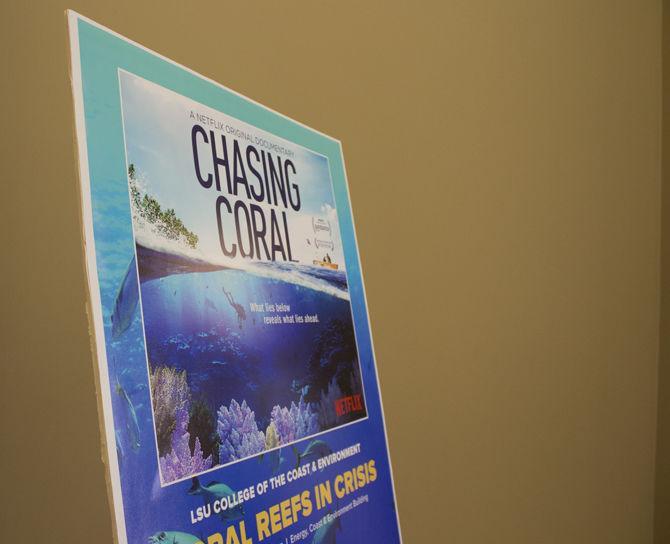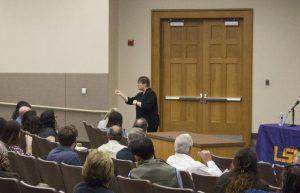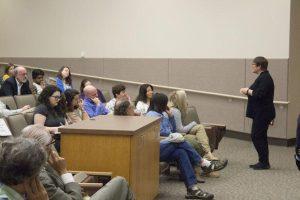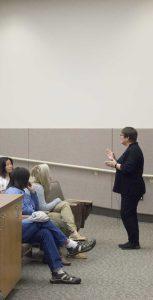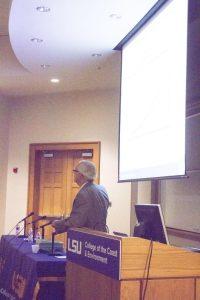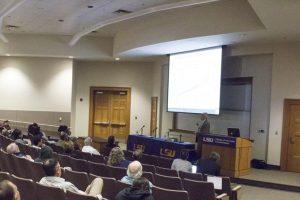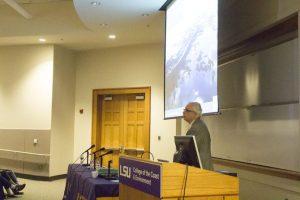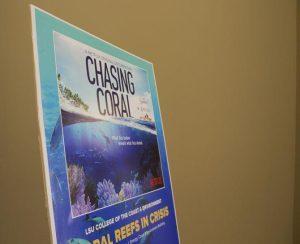Louisiana’s coral reefs might be gone before the majority of Louisianans even know they exist. Due to the rapid warming of coastal waters, the Flower Garden Banks coral reefs are quickly shrinking.
The Flower Garden Banks National Marine Sanctuary lies just off of the Louisiana and Texas coast, and contains some of the healthiest coral reefs in the world. Around 6.5 acres of the sanctuary were destroyed in 2016 due to the rise in water temperature, which creates a phenomenon called coral bleaching, and each year since has begun to look worse and worse for them.
The LSU College of the Coast and Environment hopes to raise awareness of this rapid extinction, along with the threat coral reefs everywhere face, through their lecture series, “Corals in Crisis.”
The lecture series, which lasted from March 1-2, featured the Netflix documentary “Chasing Corals,” as well as lectures and panels on coral bleaching led by key science advisers from the documentary such as James Porter.
James Porter is an emeritus professor at the University of Georgia, where he’s been studying coral reefs for 45 years. He is extremely passionate about this cause and vocal about the dangers caused by coral bleaching and global warming.
“Climate change is the most important issue of the 21st century. Absolutely nothing is going to even come close to it,” Porter said. “And the reason is, climate change threatens the habitability of our planet. It threatens our food supply, it threatens everything we hold near and dear. And unless we can get a grip on this problem, we’re going to lose the fundamental ecological processes that support life on earth.”
Porter referred to the extreme importance of coral reefs, which are essential to life. According to his lecture, almost 500 million people rely on coral reefs for their food and livelihood. Around 25 percent of all marine life depends on coral reefs. Organisms living in coral are also a significant source of new pharmaceuticals, such as treatment for AIDS. If ocean temperatures rise by only two degrees, there will be a mass extinction.
“Coral reefs are truly the canary in the coal mine. Because we’ve stuck them in the coal mine, which is the ocean,” said Porter.
The oceans absorb around 93 percent of heat generated by global warming. Without this absorption, Porter projects that the average temperature would be 120 degrees. Although the heat absorption makes the planet livable for land animals, it’s proving disastrous for coral reefs, the proteins of which begin to denature once water gets too hot. Porter talked more about the danger of heat absorption for corals.
“Now that’s good for human beings, but terrible for coral reefs because—and here’s an irony — coral reefs live much closer to the upper lethal temperature that kills them than to the lower lethal temperature that kills them,” Porter said. “You can cool the ocean down and corals will survive. But you can’t heat it up. Corals are only two degrees away from an environment they cannot survive in. And global warming is likely to raise those temperatures. That’s the background that has us coral reef biologists so upset, so motivated to get the next generation to do something about it.”
Porter also talked about Louisiana, and the increasing struggle the state has with climate change and coastal erosion. He predicted that eventually, a choice between oil and gas production and livable conditions will have to be made.
“Ultimately there’s no alternative but to get off these fossil fuels,” Porter said “And I have great faith in Louisiana being able to find an economy that is not based off destroying itself.”
Other speakers at the “Corals in Crisis” event talked about possible solutions to coral bleaching. Ruth Gates, director of the Hawaii Institute of Marine Biology and president of the International Society for Reef Studies, has been working with her team in the hopes of possibly creating corals that will be able to withstand climate change and temperature increase. She focused on the importance of preparing for a future in which the world is warmer. Gates is trying to create resilient coral reefs, and conserve the ones that remain.
University students seem to reflect this opinion and this need for action. Environmental science junior Roya Shalchi said the event inspired her to learn more about solutions to these problems.
“It really hit home to me, it really made me upset that this was happening, that we don’t really know about it,” Shalchi said. “But after I watched the documentary I felt more hopeless than anything, so it’s really nice that [Gates] came and talked about what we can do, that there is something, there is hope for us. To make a change instead of just being sad that the coral is dying.”


